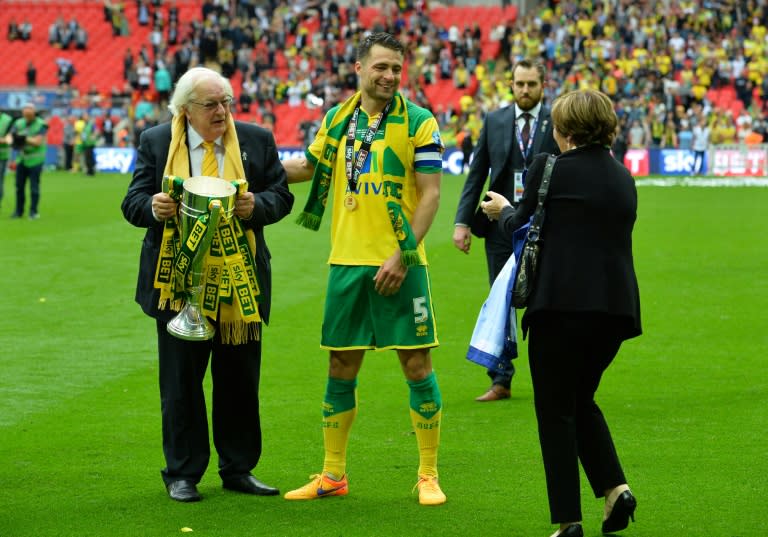Vialli's crowdfunding platform creating 'bond' between clubs and fans
Former Italy international Gianluca Vialli and business partner Fausto Zanetton believe their innovative crowdfunding platform Tifosy can help arrest the growing feeling of estrangement between football clubs and supporters. The co-founders of the platform are targeting clubs outside the top 20-30 globally, raising capital through the issue of equity, or debt, in the form of mini-bonds. So far they have enjoyed success with crowdfunding for Italian clubs Frosinone and Pescara -- Pescara recently raised 2.37 million euros ($2.7 million, £2.1 million) from nearly 400 investors -- as well as Norwich, in England's second-tier Championship. "I think what Luca (Vialli) always says, and he has been here (England) a long time and has seen the evolution since the English Premier League was created -- that bond between fans and clubs has been diluted over time," Zanetton told AFP. "Financial interests become very material for the owners, who really have to think about maximising revenues, in a way making money off fans and on the other hand keeping the balance they still feel they are really engaged with the club. "A tool like this (the platform), enabling people to invest and which creates a real bond, could be very helpful." Zanetton, a former investment banker in London specialising in financing sports and entertainment, says the crowdfunding model works for the clubs as it attracts fans as opposed to institutional investors. Institutional investors, says Zanetton, are not attracted by such a volatile investment and prefer assurances such as predicted cashflow over two years, which football clubs cannot give. "On the one hand it is flexible for the club, more flexible than institutional markets," said Zanetton. "All the people know what they are getting into, the risk factors, all financials are there. "It is quite sophisticated. It isn't 'Hey put in 500 quid (pounds) and the money is going to go to Norwich and you won't really know what is going to happen with it'. "It is tangible. For instance, Norwich are building a training facility (after raising £5 million). We put protection in there that if the club in the future were to sell the training centre, investors get their money back." - 'Need to hedge ourselves' - Zanetton, who admits it took several sessions in the kitchen of former Chelsea player and manager Vialli to get him on board, said there are no limits on the number of investors. There were 740 -- including from Singapore and the United States -- who invested in the Norwich offer, scores of them not on the club's database. However, there was a minimum figure of £500 as an investment -- Zanetton says that is because the yield on anything less than that for the investor is not worth it. Each year they will receive eight percent interest made up of five percent cash interest and three percent club credit, which can be used to pay for food and goods at the club. "They don't have shares, it is a debt instrument, it is a loan to the club," said Zanetton. "They get their money back after five years. "It is an unsecured bond so there is no security on the asset or the club, which for the club is quite beneficial as it is more flexible but there are certain covenants that protect them (the investors). "The club cannot for instance pay dividends to shareholders without paying back investors within the five years." The urbane Zanetton, born in Italy but brought up in Belgium, says the one potential dark spot on the horizon is Brexit. Zanetton, who is looking to enter French and Spanish markets next year, said being a British-based business, it will need to obtain a European licence to operate, which could take up to nine months. "It can affect business for sure," he said. "We need to hedge ourselves. We are a global and European platform and we need to be able to work with mainland European clubs."




